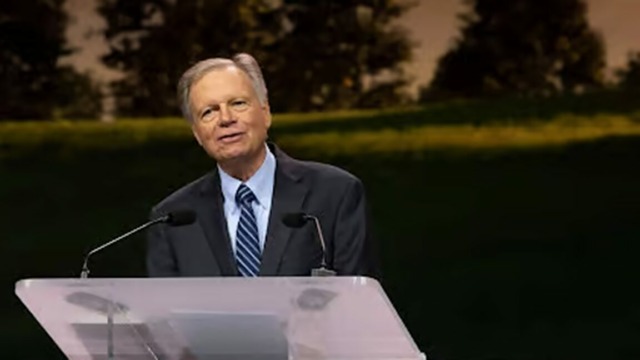By Doug Inglish — I went to a public university for my graduate degree, which is not to say that I was surrounded by a crowd of atheistic, evolution-spewing hedonists whose every thought, word, and action was bent toward evil. That may describe a subsection of both students and professors I knew there, but far from all of them. Many were active in their churches, and overwhelmingly, they respected my beliefs. I am happy that I went to an Adventist college during a more formative period of my life, and I recognize that my deep involvement in the local church while in graduate school kept me grounded, but spending time with people of other faiths, as well as people of no faith, was a learning opportunity.
We who were serious about our faith recognized that same quality in others around us. We shared mutual academic interests with partyers, so we got along well with them, but we didn’t spend much extracurricular time with them.
Of course, one thing we all shared was relative poverty. Some had full-time jobs and only took a class or two at a time, but most of us were full-time students, mostly on graduate fellowships. The fellowship had minimal work requirements, so it was a great way to pay for your education. It just wasn’t a great way to pay the rent, which meant many grad students had side jobs.
One of the students I got along with best was a fellow Christian who worked as a waiter to help make ends meet. We were talking over an assignment one day and fell into a common topic; namely, how can you live on the $400 a month without either a working spouse, extra job, or trust fund? He told me how much he typically brought in waiting tables for an evening, then, almost as an afterthought, added, “Of course, that’s before tithe and taxes.”
Now, with my upbringing, tithing was normal. It’s not just what my family did; it’s what most active members did, what we heard in sermons and read about in church publication (yes, like this one), and learned about in Bible class at church school. I knew all about tithe, including the fact that Seventh-day Adventists are a minority among churches not just because we understand what it means, but because we even use the word at all. Most churches, despite the fact they depend on giving from their members for the overwhelming majority of their financial support, don’t talk about, let alone practice, true tithing. So, when my friend used the word, it caught my attention.
“Tithe? I didn’t know that Catholics tithed.” I realize now that there was very little tact in my observation, but in my defense, he had caught me completely off guard.
He smiled and declared, “We don’t. But I do.”
It was one of those moments when you know that someone else gets you. Really, really gets you. Both of us were struggling, but that didn’t keep either of us from tithing.
But digging deeper into the three sentences that I have here reported from the larger conversation, there is something else that strikes me about his faithfulness. He mentioned two things that took a bite out of his income. One of them, taxes, was something over which he had no control. The other, tithe, was entirely within his power to ignore. But he spoke of those reductions in income as if they were beyond question. In his mind, obviously, they were.
But why was tithe beyond question for him? I had a lifetime of exposure to cheerful givers who taught by word and deed that tithing is an expression of trust that brings peace and security. I had seen the blessings in my family growing up and had experienced them firsthand since establishing my own household. But his church, which has never been shy to impress upon its members their sacred duties, did not require tithing. How did he end up with the same attitude I had, in which robbing God was as unthinkable as living on Saturn?
I’m just going to have to live with not knowing the answer to how tithing became a way of life for him. I didn’t ask because it was enough for me at the time to enjoy the fact that here, in this secular environment, was somebody who got me on a really personal level. It was one more thing we had in common, and when you are as outnumbered as we were, that’s a pretty special thing to discover.
I don’t regret that Adventists teach stewardship. To do otherwise is, as Ellen White pointed out, to ignore “. . . a matter which involves a blessing or a curse…” (Counsels on Stewardship, p. 106). But I also know that there is a danger that our faithful stewardship might be less about enjoying the blessings and more about avoiding the curses.
My Catholic friend from graduate school, whose education on the matter was almost certainly not as thorough as mine, didn’t grow up with his church teaching him anything about tithing, but somewhere along the way, he picked up an understanding of the blessings. And it was clear from the way he spoke those simple words, “But I do,” that the fear of a curse had nothing to do with his choice.
My prayer is that somewhere along the way, you, too, learn of the blessings and that your choice isn’t motivated by the fear of a curse. We, of all people, should know these things.
–Doug Inglish is RMC stewardship director; photo by iStock




